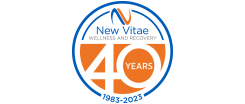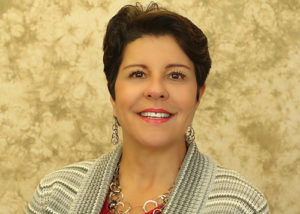As March unfolds and Brain Injury Awareness Month takes center stage, New Vitae Wellness and Recovery stands alongside individuals and caregivers affected by brain injuries. With a deep commitment to mental wellness and recovery, our team understands the unique challenges faced by caregivers and strives to offer guidance and support every step of the way.
From the perspective of Dr. Mary Cowgill, our Consulting Psychologist, we share valuable insights and practical strategies to empower caregivers in their journey of supporting loved ones with brain injuries while prioritizing their own well-being.
“Education is empowering,” Dr. Mary emphasizes. “Take the time to learn about the specific type of brain injury your loved one has, as well as the potential physical, cognitive, and emotional challenges they may face. Knowledge equips caregivers with the tools they need to provide effective support and advocate for their loved one’s needs.”
Practice Patience and Understanding:
“Patience is key,” Dr. Mary advises. “Remember that your loved one’s behavior may be a result of their injury, and try to respond with compassion and understanding. Behavioral changes, memory problems, and mood swings are common after a brain injury, and it’s essential to approach each situation with empathy.”
Foster Independence:
“Empower your loved one by involving them in decision-making and encouraging them to participate in activities that promote independence,” Dr. Mary suggests. “Celebrate their achievements, no matter how small, and offer praise and encouragement along the way. Encouraging independence helps your loved one regain confidence and autonomy.”
Establish Routine and Structure:
“Structure and routine can provide stability and predictability for individuals with brain injuries,” Dr. Mary highlights. “Create a daily schedule that includes regular routines for meals, medication, therapy, and rest. Consistency can help reduce anxiety and confusion, making it easier for your loved one to navigate their day-to-day life.”
“You don’t have to navigate this journey alone,” Dr. Mary reminds caregivers. “Reach out for help when you need it, whether from family, friends, support groups, or mental health professionals. Connecting with others who understand what you’re going through can provide validation, encouragement, and practical advice.”
As caregivers, it’s essential to prioritize your own well-being while caring for a loved one with a brain injury. Remember to take breaks, practice self-care, and seek support when needed. By implementing these strategies and fostering a supportive environment, caregivers can play a crucial role in promoting the recovery and well-being of their loved ones with brain injuries.
If you or someone you know is in need of support or guidance, please don’t hesitate to contact us at New Vitae Wellness and Recovery. Together, we can navigate this journey with compassion, resilience, and hope.






